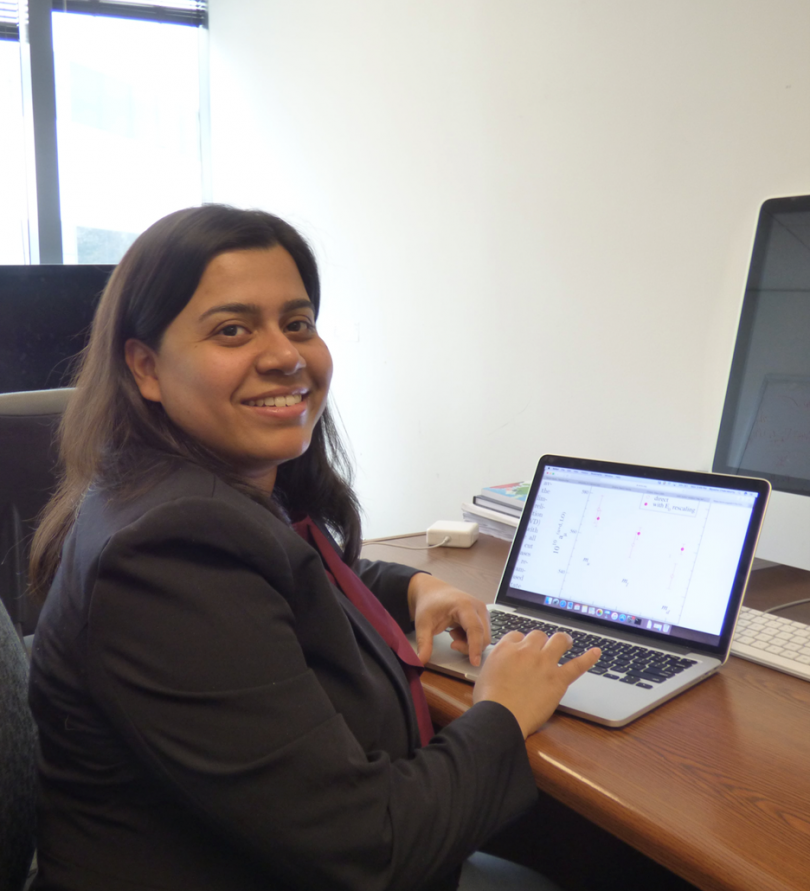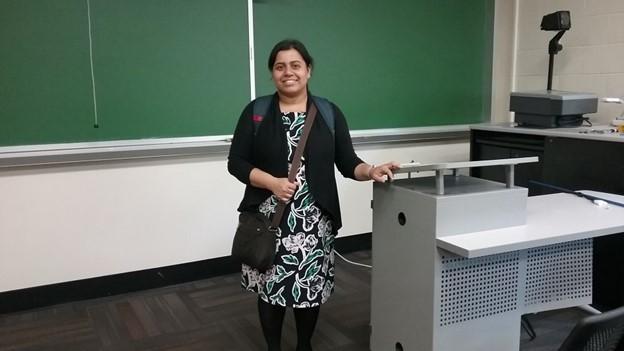I joined the University of Kentucky’s Department of Physics and Astronomy in the fall of 2008 as a Ph.D. student. From the very first day, it was a wonderful journey for me as an international student, and the department helped me tremendously to shape my academic career as a particle physicist alongside making long term, solid friendships.
Currently, I am a Assistant Professor in High Energy Physics at the University of Southampton in the United Kingdom. At the University of Kentucky, I pursued theoretical particle physics, precisely lattice QCD under the supervision of Professor Keh-Fei Liu. Lattice QCD provides a successful first-principles, highly computational framework to study the dynamics of quarks and gluons, which are subatomic fundamental particles glued together by a strong force creating our visible Universe. With Keh-Fei, I worked on an extremely interesting problem known as “Proton Spin Puzzle,” which accounts for spin contributions coming from constituent quarks and dynamic gluons inside a proton to make its spin exactly half. Although I opted to leave with a master’s degree and later completed my Ph.D. in the UK at the University of Glasgow to live closer to my husband, my experience at the University of Kentucky was indispensable for my Ph.D. work at Glasgow.

At Glasgow with the prestigious Gilmour Scholarship, I pursued research on the precision tests of the Standard Model of particle physics. Standard Model, the periodic table of particle physics, is an outcome of decades of theoretical and experimental research and one of the most significant achievements of twentieth century physics. While this is extremely successful in encoding all the fundamental particles discovered so far and accounts for three of the four fundamental forces in nature, numerous hints exist about the limitation of this Model, thereby suggesting unknown physics beyond it. During my Ph.D., I worked on the precision calculation of the anomalous magnetic moment of the muon (g-2) to test the signs of new physics beyond the Standard Model. This work opened many exciting avenues, such as well-cited publications, new international collaborations, multiple exciting postdoctoral offers, and numerous invited conference talks and led to my postdoctoral position at Jefferson Lab in the USA.
My goal was to extend my research horizon beyond my previous research directions. Therefore, I got involved with studying exotic mesons alongside working on muon g-2 in alignment with the lab’s experiments and pursuing precision flavor physics calculations in alignment with physics at CERN and other colliders. My work here led to some accolades – getting invited for APS talk, invitation to MIT Rising Stars in Physics, and Jefferson Associates Promising Young Scientist Award.
Two years later, I joined the University of Cambridge as a postdoctoral researcher, and the year following I won the Leverhulme Trust Early Career Fellowship in a national level competition. This fellowship offered me complete independence to design and lead my own research projects. I further developed my research in hadron spectroscopy and precision flavor physics and co-led exciting new research in direction-quantum computation for quantum field theories. While both quantum computation and high energy physics are established research fields, research at their intersection is still in its infancy, and our work was one of the very first efforts in this direction in the UK. For this exciting research and proposal to build quantum computation algorithms for Quantum Chromodynamics, I won the first United Kingdom and Ireland Joseph Fourier Prize in 2022.
Currently at Southampton, I am leading a group of three Ph.D. students and a postdoctoral researcher working in lattice QCD and quantum computation. This is an exciting time for computational particle physics as we are on the verge of having breakthroughs with Exascale computing and quantum computation, and it is projected to catapult our default ways of computing for particle physics, although the latter is still in its inception. My University of Kentucky experiences and learning have been invaluable to build my career and research path.

